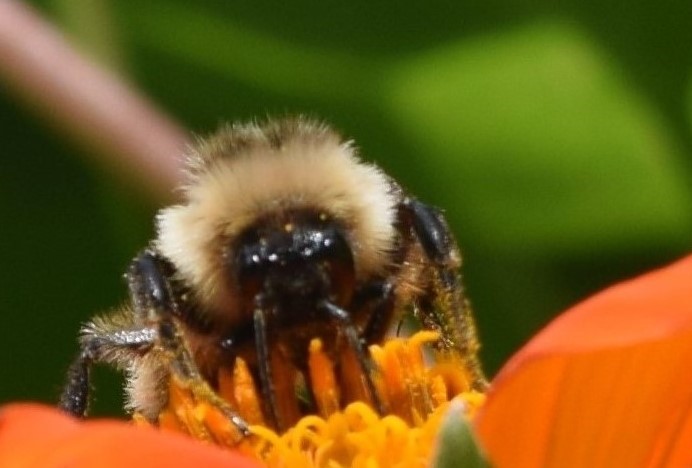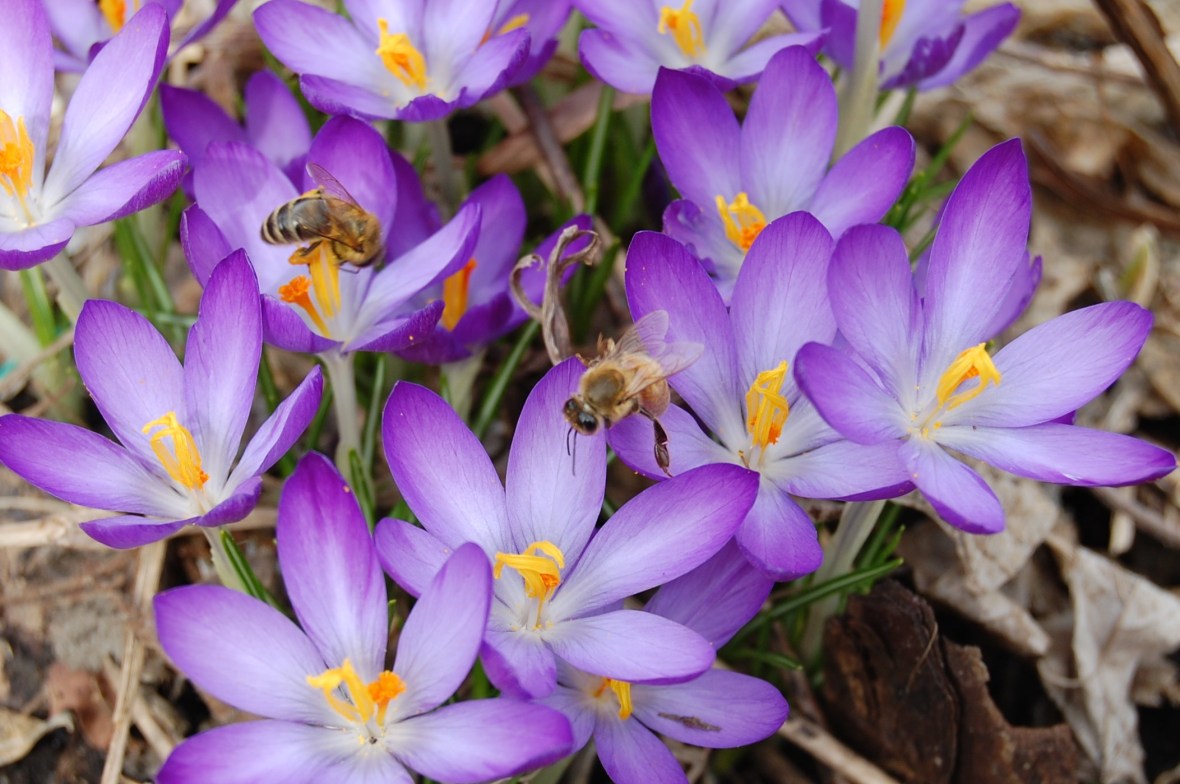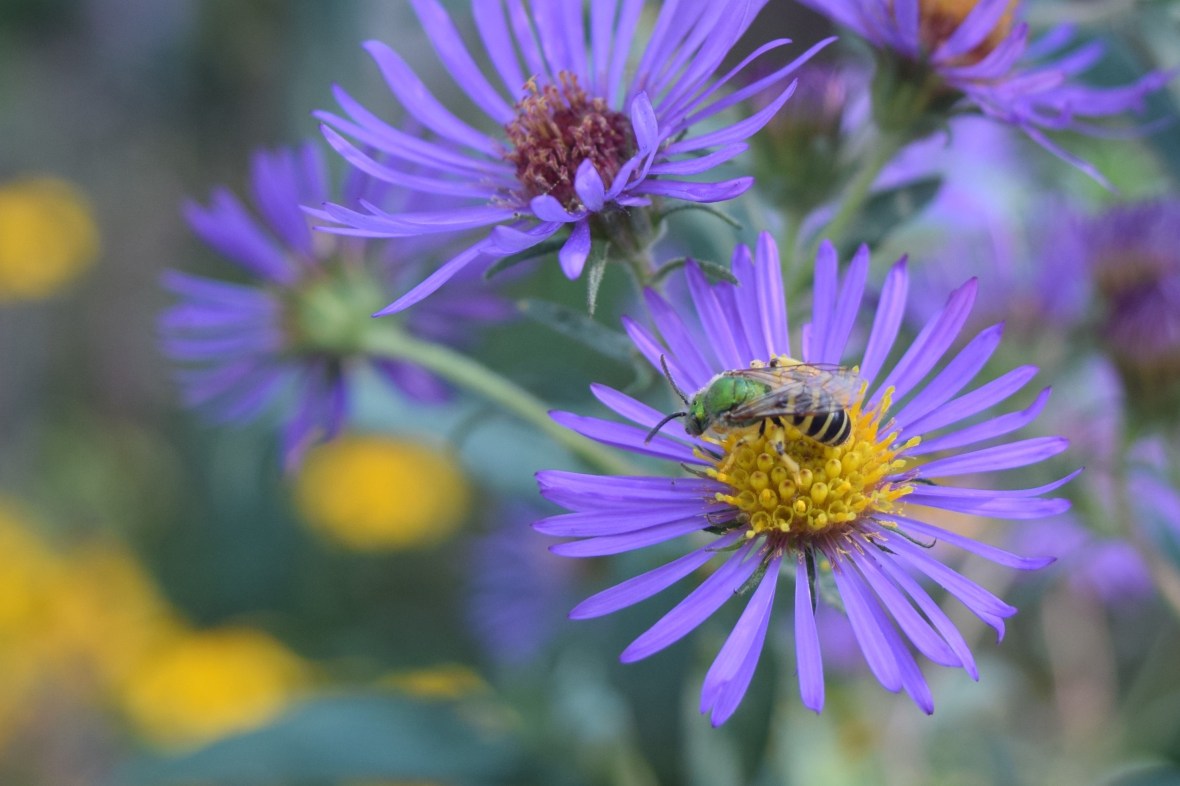Pesticide Progress for Pollinators?
A new study by the Pesticide Research Institute indicates that the presence of neonicotinoids has fallen by half in ornamental plants sold by major retailers. Neonicotinoids are a class of insecticide that is widely considered to be a major threat to the future of bees and other pollinators.

The study tested plants purchased from Lowe’s, Walmart, Home Depot, True Value, and Ace Hardware. The presence of neonicotinoids was detected in 23% of the plants in 2016, as opposed to 50% of the plants purchased in 2014.

Lowe’s and Home Depot have pledged to phase out plants treated with neonicotinoids, the other retailers have not.

It’s gratifying to see that a combination of education, publicity, and consumer organizing can have an impact on corporate behavior, an impact that should lead to a healthier environment for pollinators in urban and suburban areas.

On the other hand, consumer power alone can only go so far. According to the US EPA, 70% of US pesticide use is related to agriculture, as opposed to 15% in homes and gardens. (That 15% matters a good deal, especially as it is often applied in concentrations greater than those used in agriculture.) Neonicotinoids are commonly used on corn, cotton, sorghum, and most fruits and vegetables.

I suspect that government regulation will be needed to curtail the use of neonicotinoids in agriculture. Most likely that is not something that will happen in the USA until after a long slog. In the meantime, we can savor this bit of good news for gardeners and pollinators.





Every little bit of progress helps. 🙂
Great post–kudos to the retailers who’ve committed to phase out these harmful “garden” chemicals.
Every little bit does help, but it’s still a depressing notion. I would think that especially for flowering plants that actually make use of bee pollination, the growers would smarten up.
It’s baffling how short-sighted people tend to be.
This is so good to hear Jason. I haven’t bought anything from these places this year. I will wait until they cut out the neo… for good.
That is good news! But we can always do better.
Good news but we still have a long way to go. But something is better than nothing, in this case.
An interesting post, I must try to find out what is happening in Canberra, in this regard. It is heartening to know that consumer organising and education and publicity help the process. Agriculture is the tough one.
I am afraid – while every little bit helps – it is in no way enough. Montsantos & Co see to that.
You may be right, but it still cheers me.
That is encouraging. All these things take time. Thanks for the report.
Sounds like more success than in the UK! There places are selling plants with a ‘good for pollinators’ label even when they’ve been treated with pesticide!
That sort of thing makes my blood boil.
Great news…..love the pictures. I really think the world of sharing info via blogs is helping get the word out and making a difference!
I hope you are right!
Pingback: Pesticide Progress for Pollinators? — gardeninacity | Old School Garden
I also feel that although these news are positive it’s agriculture that’s doing most damage and if the population is continuing to grow at such a rate, they certainly won’t change their methods as it’s all about being efficient in every sense no matter what…
Good point, though ultimately some of these agricultural methods are self-defeating in the long run (for instance, by killing off the pollinators).
That is certainly heartening to hear Jason, any improvement makes a vast difference. I did enjoy these pics, wonderful.xxx
That is good news, but 23% is still too much. Good to know Lowes and Walmart are planning to phase them out entirely. Public education is the key; when the demand becomes great, then the farmers will follow. A few years ago one rarely saw organic fruits and vegetables in the grocery store. Now they are easily available, though admittedly more expensive.
True, 23% is too much. What’s important now is to see if the trend continues.
Must celebrate the small steps.
That is good news. Yes, every small step in the right direction helps.